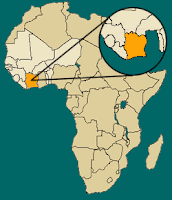I hope to work with children and their families from diverse backgrounds to celebrate the richness of their cultures and seek ways and means by which the local, state, and federal governments can help early childhood development programs have access to the implementation of quality education. I also want to create hope and make everyone come together as one and not to judge ourselves because of age, size, class, and color.
As an educator, I would like diversity to be celebrated, to help each child have an equal opportunity for their values and beliefs to be acknowledged. When we teach and have activities of diversity among children this will help them eliminate the biases of discrimination and marginalization which they have experienced. So we as educators need to reflect on our biases, behaviors, values, beliefs and attitudes to sort out how these affect the ways we interact with others.
As we conclude this course I want to thank all my colleagues for sharing their inspirations with me, it is a great opportunity and I appreciate it. This course has opened my eyes to see my biases and know more about myself to see ways I can be better to help others. I have also learned from all your experiences and understand that we all have biases that we are working on resolving and it is a journey. Diversity helps us to understand ourselves and the world. I hope to see you in the future and I wish you all the best.

